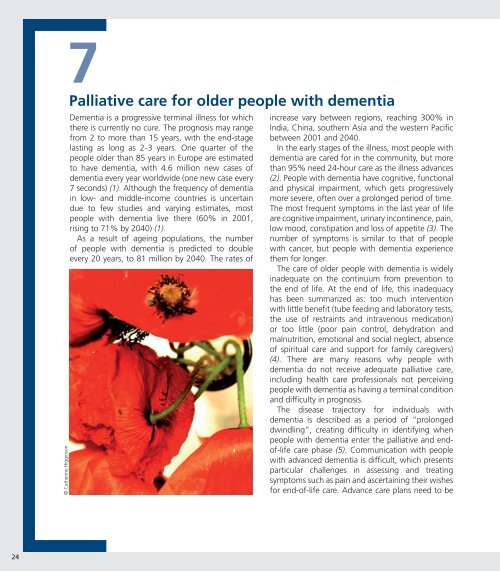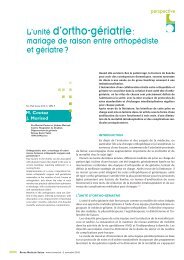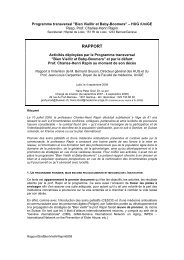Palliative care for older people - World Health Organization ...
Palliative care for older people - World Health Organization ...
Palliative care for older people - World Health Organization ...
You also want an ePaper? Increase the reach of your titles
YUMPU automatically turns print PDFs into web optimized ePapers that Google loves.
© Catherine Higginson7<strong>Palliative</strong> <strong>care</strong> <strong>for</strong> <strong>older</strong> <strong>people</strong> with dementiaDementia is a progressive terminal illness <strong>for</strong> whichthere is currently no cure. The prognosis may rangefrom 2 to more than 15 years, with the end-stagelasting as long as 2–3 years. One quarter of the<strong>people</strong> <strong>older</strong> than 85 years in Europe are estimatedto have dementia, with 4.6 million new cases ofdementia every year worldwide (one new case every7 seconds) (1). Although the frequency of dementiain low- and middle-income countries is uncertaindue to few studies and varying estimates, most<strong>people</strong> with dementia live there (60% in 2001,rising to 71% by 2040) (1).As a result of ageing populations, the numberof <strong>people</strong> with dementia is predicted to doubleevery 20 years, to 81 million by 2040. The rates ofincrease vary between regions, reaching 300% inIndia, China, southern Asia and the western Pacificbetween 2001 and 2040.In the early stages of the illness, most <strong>people</strong> withdementia are <strong>care</strong>d <strong>for</strong> in the community, but morethan 95% need 24-hour <strong>care</strong> as the illness advances(2). People with dementia have cognitive, functionaland physical impairment, which gets progressivelymore severe, often over a prolonged period of time.The most frequent symptoms in the last year of lifeare cognitive impairment, urinary incontinence, pain,low mood, constipation and loss of appetite (3). Thenumber of symptoms is similar to that of <strong>people</strong>with cancer, but <strong>people</strong> with dementia experiencethem <strong>for</strong> longer.The <strong>care</strong> of <strong>older</strong> <strong>people</strong> with dementia is widelyinadequate on the continuum from prevention tothe end of life. At the end of life, this inadequacyhas been summarized as: too much interventionwith little benefit (tube feeding and laboratory tests,the use of restraints and intravenous medication)or too little (poor pain control, dehydration andmalnutrition, emotional and social neglect, absenceof spiritual <strong>care</strong> and support <strong>for</strong> family <strong>care</strong>givers)(4). There are many reasons why <strong>people</strong> withdementia do not receive adequate palliative <strong>care</strong>,including health <strong>care</strong> professionals not perceiving<strong>people</strong> with dementia as having a terminal conditionand difficulty in prognosis.The disease trajectory <strong>for</strong> individuals withdementia is described as a period of “prolongeddwindling”, creating difficulty in identifying when<strong>people</strong> with dementia enter the palliative and endof-life<strong>care</strong> phase (5). Communication with <strong>people</strong>with advanced dementia is difficult, which presentsparticular challenges in assessing and treatingsymptoms such as pain and ascertaining their wishes<strong>for</strong> end-of-life <strong>care</strong>. Advance <strong>care</strong> plans need to be24
















